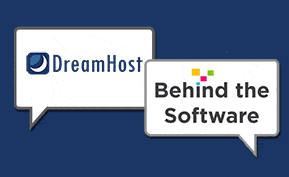Cloud Hosting
When Is The Right Time to Head to the Cloud?

In recent years we have seen many vendors of traditional, on-premise ERP solutions release (or are in the process of developing) cloud ERP systems. More and more businesses now see the cloud as a viable delivery method for their business. This is illustrated in a 2011 study by Aberdeen Group which found that 52 percent of respondents would consider deploying on-demand/SaaS ERP, which is more than double the percentage from 2009.
Therefore it’s no surprise that with the hype surrounding cloud computing, businesses of all sizes will be asking the question, “Should we move our business systems to the cloud?”
Each business has different requirements but there are some considerations to take into account when choosing the right solution for your organisation and if it’s the right time to move to the cloud.
Mentality
Moving to the cloud can be a huge cultural shift for some businesses. Mentality is one of the big issues that need to be overcome within an organisation when deciding whether to go down this route. Getting buy-in from senior executives and end-users alike, who may have only ever known on-premise systems requires a different mind-set. They need to get used to their business being run on the cloud – and ultimately trusting it! The ‘comfort blanket’ of owning the software and storing data on their own servers is a change of mentality that needs to be overcome.
In contrast the younger generation in my experience automatically expect products to be on the cloud. They’re used to iTunes, to streaming movies from LoveFilm and downloading digital books to their mobile device. They’re not concerned with owning the tangible product, only that it is accessible to use wherever and whenever we want.
In fact the ability to access information at any time, from anywhere is one of the major benefits of the cloud, but I’ll save this for a later post.
Connectivity
It goes without saying that internet connectivity is vital when it comes to the cloud – no connectivity equals no software. Therefore if you’re considering running your business systems on the cloud, it’s vital that you can rely on your internet connectivity. There’s no point in subscribing to a vendor that promises an SLA of 99.99% uptime if you’re connection regularly drops or has poor bandwidth.
An additional consideration is to ensure you have a plan B should, for any reason, you lose internet connection. This may be as simple as back-office staff working from home, as I have heard a few businesses doing, or getting a secondary connection.
IT Resource
Many smaller organisations may not have their own internal resource for looking after their IT infrastructure, including their servers. In this instance, a cloud solution may be the best form of software delivery as it would remove the need to have someone look after any software-related infrastructure, either internally or through an external supplier.
Infrastructure
The decision to invest in a cloud-based system may be linked to the infrastructure within the business. If you’ve recently invested tens of thousands of pounds in new servers, the chances are a cloud solution might not be for you at this time. However for immature, fast growing businesses with little or no infrastructure, the cloud could be perfect.
In many cases the required infrastructure to run on-premise ERP software can cost as much as the software itself, effectively doubling the year one cost of the system. In this instance, the cloud would probably become the delivery option of choice.
Another scenario could be when a business comes to upgrade their existing on-premise solution. Organisations usually upgrade every 2-3 years and in some cases this also requires a server upgrade to meet the system requirements of the latest update. Again, this would be the time to seriously consider a cloud delivery.
Every business is different and there will undoubtedly be many areas to look at when it comes to changing businesses systems. These that I have outlined are some generic things for your organisation to consider when deciding on whether it is the right time to move your ERP/business systems to the cloud and I’ve hopefully given you food for thought.
Want to read more insider-perspective posts on cloud computing and SaaS platforms? Check out our cloud management software resource center for additional content such as selection and implementation tips.





